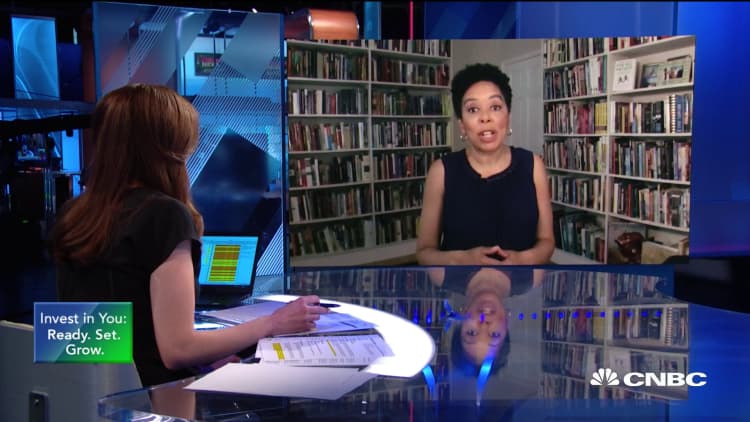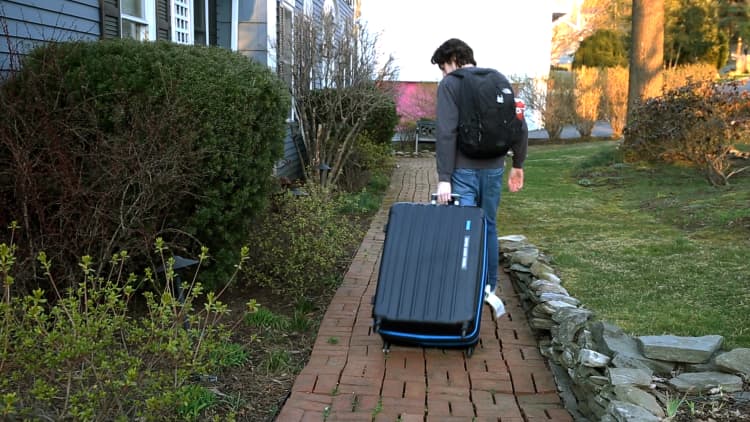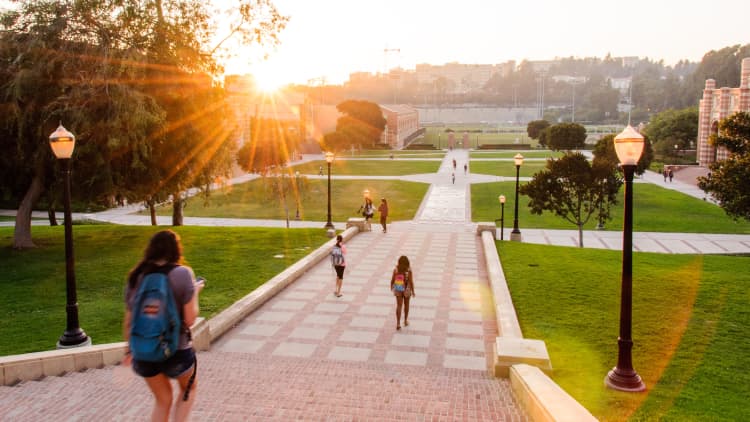
As the spring semester comes and goes, the future looks even more uncertain for colleges and universities across the country.
Even before the global pandemic caused craters in the economy, some institutions were facing financial hardship after years of deep cuts in state funding for higher education.
Now, falling enrollment and retention rates due to Covid-19, as well as summer program cancellations and significant declines in giving, have taken another toll on these cash-strapped colleges.
MacMurray College, a 174-year-old institution in Jacksonville, Illinois, announced it will close entirely at the end of May. Board of Trustees Chair Charles O'Connell said that, despite the generosity of alumni giving, MacMurray had "no viable financial path forward."
"We were left with no alternative and had only one responsible option," he said.
The school negotiated transfer agreements for its current students with seven area colleges, according to MacMurray President Beverly Rodgers.
"We will assist all students in their transfer needs, helping them ensure they are able to complete their degrees," Rodgers said. "We will also support our faculty and staff in their transitions to other positions."

"In a year or two years, I expect to see something north of 100 colleges on the brink of financial ruin," said Hafeez Lakhani, founder and president of Lakhani Coaching.
As more students reconsider whether to enroll in remote learning come the fall, schools dependent on tuition revenue are facing a growing shortfall.
Meanwhile, college costs are skyrocketing. Tuition and fees plus room and board for a four-year private college averaged $49,870 in the 2019-20 school year; at four-year, in-state public colleges, it was $21,950, according to the College Board.
As a result, some students are saying that remote learning is just not worth the cost and choosing to stay close to home, enrolling in in-state public school or community college or even taking a gap year.
"Where are they going to get enough money to keep these universities functioning?" Lakhani said. "Like everything, it depends entirely on the course of the virus."
In these desperate times, colleges across the country are trying various methods to stay afloat.
The San Francisco Art Institute is undergoing a major restructuring, which includes dropping degree programs and offering on-site and online studio art classes instead.
Due to an "unsustainable enrollment decline," Notre Dame de Namur University, also in the San Francisco Bay Area, said it would not enroll new undergraduate students for the fall, although the school added "we hope to find a way to remain open in the future."
More from Personal Finance:
Post-pandemic, remote learning could be here to stay
Demand for refunds intensifies among college students
College enrollment could drop if schools stay closed
A number of other colleges are freezing tuition in an attempt to entice more students and families to attend.
The College of William & Mary in Williamsburg, Virginia, said it would roll back a previously approved 3% tuition increase and keep tuition and fees for all students unchanged for the coming year.
"A lot more schools are finding themselves with their backs against the corner," said Mayssoun Bydon, founder and managing partner of The Institute for High Learning, or IHL Prep, an educational consulting firm.
Already, universities have furloughed thousands of employees and announced revenue losses in the hundreds of millions, according to the Chronicle of Higher Education.
And still, the worst may be yet to come, Bydon added.
"We are going to see a lot more schools begin to close over the next few months," she said.



